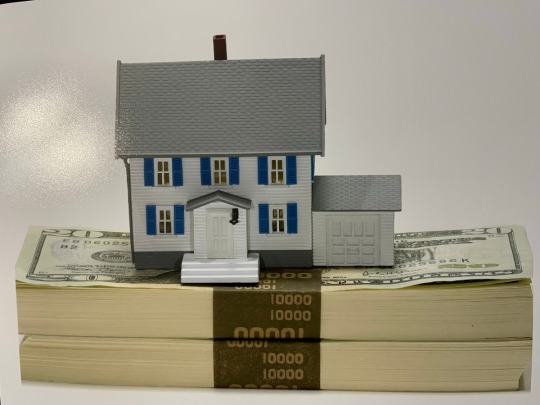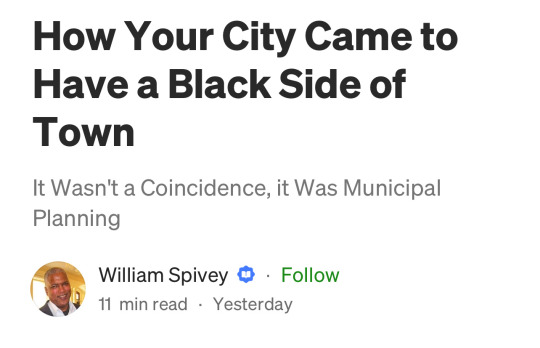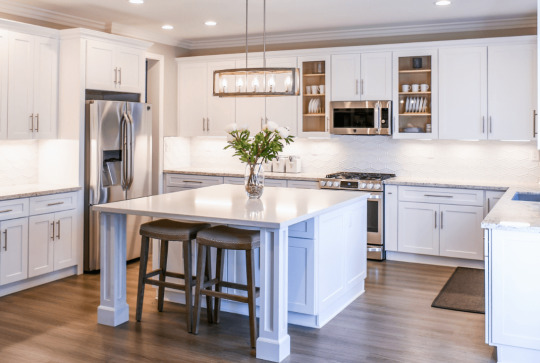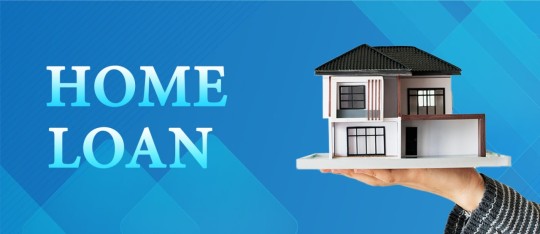#fha home loan
Text
FHA Loan Riviera Beach Florida just a call away- 800-826-5077
FHA Loan Riviera Beach Florida just a call away- 800-826-5077
https://www.cambridgehomeloan.com/fha-loan-riviera-beach-fl-fha-home-loan-lender/
Call- 800-826-5077 for FHA related questions (Not just Riviera Beach or Florida, we are serving nationwide)
FHA Loan Riviera Beach, Florida
We are proud on being Riviera Beach Florida’s #1 FHA loan lender. We help borrowers in Riviera Beach to qualify for the best FHA loan program to meet their borrowing…

View On WordPress
0 notes
Text
5 things every self-employed borrower needs to know to get a mortgage loan!
5 things every self-employed borrower needs to know to get a mortgage loan!
The self employed seem to have a harder time getting a mortgage loan. I am convinced that’s because you just don’t know all the options available to you! Here are 5 things you MUST KNOW before you get turned down and deflated…
Conventional and government lending operate off of a 2 year income scale. In general, unless you have been in business for 5 years and can prove it (and then there’s only…

View On WordPress
#Bad credit#Bank statements#FHA home loan#non-QM#non-QM home financing#what&039;s an alternative to conventional loans for a rental property?
0 notes
Text

When looking at where the Black sides are, we could start by considering where they are not.
FHA and VA loans are credited with helping form the middle class of America by making homeownership available to a large portion of the population. Large housing complexes were developed, beginning with Levittown in Long Island, NY. Similar complexes sprung up in many major cities with one thing in common. No homes could be sold to Black people, with the federal government fully backing redlining, which made segregated housing the rule and not the exception. Black sides of town evolved where the whites elected not to go. There were housing complexes created for Black and Jewish people as well; these “projects” were definitely not intended for the middle class.
(continue reading)
#politics#redlining#housing#housing discrimination#racism#structural racism#anti blackness#fha loans#va loans#home loans#levitt town#generational wealth#segregation#housing projects
65 notes
·
View notes
Link
Smart Home.IQ Touch Panel.Sky Bell
#gulf coast#smart home#country living#country life#city country#fence#school district#biloxi#with acreage#land#new build#new constr#new construction#vinyl flooring#property#first time home buyer#va loans#fha#usda
2 notes
·
View notes
Text
HARP 2 Refinance For Homeowners With Underwater Mortgages
In order to assist homeowners with underwater mortgages in refinancing their houses, the Federal Housing Finance Agency (FHFA) launched the Home Affordable Refinance Program (HARP) in 2009. HARP 2, an enhanced version of the 2012-introduced program, gives borrowers who are having trouble making their mortgage payments greater flexibility. We'll look more closely at the HARP 2 refinance in this blog post and how it can help homeowners with underwater mortgages.

What is an Underwater Mortgage
Let's start by defining an underwater mortgage. A homeowner who owes more on their mortgage than the value of their home at the time is said to be in an underwater mortgage position. A decrease in property prices, a change in the homeowner's financial condition, or other circumstances may be to blame for this.
It can be challenging to refinance a property when a homeowner has an underwater mortgage since conventional lenders could be reluctant to offer a refinancing loan. Herein is the value of HARP 2. With more lax conditions, the program enables qualified homeowners to refinance their underwater mortgage.
Benefits of HARP 2 Refinance
One of HARP 2's key advantages is that it enables homeowners to refinance their mortgage at a loan-to-value (LTV) ratio that is generally higher than what traditional lenders would permit. Homeowners may be able to refinance with an LTV ratio of up to 125% in some circumstances. This implies that homeowners may still be able to refinance and lower their monthly payments even if their home is worth less than what they owe on their mortgage.
Another advantage of HARP 2 is that it enables homeowners to refinance even with bad credit or a history of financial troubles. The program can assist homeowners who have had trouble getting approved for other forms of refinance loans because it has more lenient credit requirements than typical lenders.
Requirements to Qualify for HARP2 Refinance
Homeowners must fulfill specific eligibility conditions in order to be eligible for HARP 2. These consist of the following:
The mortgage must have originated on or before May 31, 2009, and it must be owned by or insured by either Fannie Mae or Freddie Mac.
The homeowner's mortgage payments must be up to date, with no more than one late payment in the previous 12 months and no late payments in the previous six months.
An LTV ratio of at least 80% is required.
The homeowner must demonstrate their ability to pay the increased mortgage payment.
Not all homeowners with underwater mortgages will be eligible for HARP 2; it is crucial to keep this in mind. But for those who do meet the requirements, the program can offer important advantages and support them in maintaining their homes.
To Sum Up
In conclusion, the HARP 2 program can offer assistance to homeowners who have underwater mortgages. It enables qualified homeowners to refinance their mortgages with less stringent conditions, such as a greater loan-to-value ratio and lenient credit standards. Homeowners must fulfill a number of qualifying criteria, such as having a mortgage owned by or insured by Fannie Mae or Freddie Mac, being current on their mortgage payments, and having an LTV ratio larger than 80%, in order to be eligible for HARP 2. HARP 2 can be a useful tool for homeowners who meet the requirements to lower their monthly mortgage payments while maintaining their houses.
#mortgages#gca mortgages#real estate#property#loans#fha loan#va loans#harp 2 program#bad credit score#homw owners#refinance#payments#united states#usa#first time home buyer#homebuyers#Underwater Mortgages#gustancho associates#gca mortgage#non qm loans#jumbo loans#conventional loans
2 notes
·
View notes
Text
Louisiana First Time Home Buyer
Take the leap into homeownership with confidence through Educator Mortgage's Louisiana First Time Home Buyer Program. As your trusted ally in achieving the dream of owning a home in the Pelican State, we offer tailored solutions and expert guidance every step of the way. Designed to empower first-time buyers, our program provides exclusive benefits such as low down payment options, competitive interest rates, and personalized assistance to navigate the complexities of purchasing your first home. With Educator Mortgage by your side, you can bid farewell to renting and hello to the pride of homeownership in Louisiana. Let us help you unlock the door to your dream home and embark on this exciting journey today.
0 notes
Text
USDA loans mn
Supreme Lending, your trusted mortgage partner, offers usda loans mn that can help you achieve your dream of owning a home. Our team of experienced mortgage professionals understands the unique needs of Minnesota residents and can help you secure financing with zero down payment if you are purchasing a home in a rural area. With competitive interest rates and flexible qualifying criteria, USDA loans are a great option for eligible borrowers. From application to closing, our team will guide you through the entire process to ensure a smooth and hassle-free experience. Take the first step towards owning your dream home by discovering the advantages of USDA loans in Minnesota with Supreme Lending.
0 notes
Text
Qualifying Loan Programs for First-Time Homebuyers in Louisville, Kentucky
Qualifying Loan Programs for First-Time Homebuyers in Louisville, Kentucky
Qualifying Loan Programs for First-Time Homebuyers in Louisville, Kentucky

View On WordPress
#Credit score#FHA loan#Kentucky#Loan#Louisville Kentucky#Mortgage loan#Refinancing#VA loan#Zero down home loans
0 notes
Text
House Refinancing Loans in Margate - Osprey Mortgage Lending
What is refinancing of home loan?
Refinancing a home loan involves replacing your existing mortgage with a new one, typically with different terms. People refinance for various reasons, such as to secure a lower interest rate, shorten the loan term, switch from an adjustable-rate mortgage to a fixed-rate one, or to tap into their home equity for cash. Essentially, it's like hitting the reset button on your mortgage, potentially saving money in the long run or achieving other financial goals. However, it's important to weigh the costs and benefits carefully, considering factors like closing costs, the new interest rate, and how long you plan to stay in the home.

Can we refinance home loan?
Yes, you can refinance your home loan if you meet certain criteria. Here are a few common requirements:
Sufficient Equity: Lenders typically require you to have a certain amount of equity in your home before they'll approve a refinance. Equity is the difference between your home's current market value and the amount you still owe on your mortgage.
Good Credit Score: Just like when you applied for your original mortgage, lenders will assess your creditworthiness. A good credit score can improve your chances of getting approved for a refinance and securing favorable terms.
Stable Income: Lenders want to see that you have a steady source of income to ensure you can make your mortgage payments on time.
Debt-to-Income Ratio: Lenders also consider your debt-to-income ratio, which is the percentage of your gross monthly income that goes toward paying debts. They typically prefer a lower ratio, indicating that you have enough income to comfortably cover your debts.
Reasonable Loan-to-Value (LTV) Ratio: This is the ratio of your loan amount to the appraised value of your home. Lenders often have maximum LTV ratios for refinancing, so it's important that your loan amount doesn't exceed a certain percentage of your home's value.
Documentation: You'll likely need to provide documentation of your income, assets, and debts, similar to when you applied for your original mortgage.
If you meet these requirements and it makes financial sense for your situation, then refinancing your home loan could be a viable option. However, it's essential to carefully consider the costs and benefits before proceeding.
#mortgage brokers coconut creek#mortgage refinance pompano beach#home loan lenders coral springs#home mortgage lenders coral springs#fha loans pompano beach#mortgage company pompano beach
0 notes
Text
0 notes
Text
what is Home Loans?
Home loans, also known as mortgages, are loans provided by financial institutions such as banks, credit unions, or mortgage lenders to individuals or families to purchase a residential property. These loans typically consist of a large amount of money borrowed, which is then repaid over a specified period, usually ranging from 15 to 30 years, along with interest.
Here’s how home loans generally…

View On WordPress
#fha loans#fha loans for first time home buyers#home loans#home loans for first time buyers#interest-free home loans#types of home loans#va home loans#va loans#what are the types of home loans available?#what home loan is right for me#what is a fha loan#what is a heloc?#what is a home equity line of credit?#what is a home loan#what is a mortgage#what is a va home loan#what is an fha loan#what is dscr#what is Home Loans?#what is va home loan#why do you hate va home loans?
0 notes
Text
FHA Loans Brokers Austin, TX Helping First-Time Home Buyers

You can use FHA loan brokers Austin TX to refinance your current mortgage. Professionals known as FHA loan brokers assist clients in locating the ideal mortgage solutions for their circumstances. They can evaluate their clients' rates, terms, and plans because they operate with many lenders. They can also offer direction and counsel during the form submission and closing. For more details click : https://sites.google.com/view/fha-loans-brokers-austin-tx/FHA-Loans-Brokers-Austin
0 notes
Text
Real Estate Financing Trends:
Market Trends:
Rising Interest Rates: The Federal Reserve’s recent interest rate increases have significantly impacted mortgage rates, making borrowing more expensive for homebuyers. This has led to a decrease in loan applications and refinancing activity. (Source: Federal Reserve, https://www.federalreserve.gov/)
Tightening Lending Standards: Lenders are becoming more cautious, making it…

View On WordPress
0 notes
Text
Buying A House With A FHA 203k Loan Explained
If you're in the market for a new home, you may have heard of the FHA 203k loan. This type of loan allows you to purchase a home that needs some renovations with a single loan that covers both the purchase price and the cost of the renovations.
What is an FHA 203k Loan?
An FHA 203k loan is a type of mortgage that allows you to purchase a home and finance the cost of renovations at the same time. There are two types of 203k loans: the standard 203k loan and the limited 203k loan. The standard 203k loan is for more extensive renovations, such as structural repairs, while the limited 203k loan is for smaller repairs, such as replacing appliances or installing new flooring.
With an FHA 203k loan, you'll need to work with a contractor to create a detailed renovation plan as per FHA loan requirements, which will be submitted to the lender for approval. Once the loan is approved, the funds will be disbursed to the contractor as the work is completed. This means that you won't have to pay for the renovations out of pocket, and you'll only have one loan payment to make each month.

Step 1: Determine if You're Eligible for an FHA 203k Loan
Before you can apply for an FHA 203k loan, you'll need to make sure you meet the FHA loan requirements. To qualify for this loan, you must:
Have a minimum credit score of 580
Have a debt-to-income ratio of no more than 43%
Have a down payment of at least 3.5%
Use the loan to purchase a property that will be your primary residence
Have a reliable source of income
Step 2: Find a Property That Needs Renovations
Once you know you meet all the FHA loan requirements for an FHA 203k loan, you can start searching for a property that needs renovations. It's important to keep in mind that not all properties are eligible under FHA loan requirements for this type of loan. The property must meet the following requirements:
It must be a one- to four-unit property that has been completed for at least one year.
The property must be located in a community that meets certain standards for safety and livability.
The cost of the renovations must be at least $5,000.
The renovations cannot include any luxury items, such as swimming pools or outdoor kitchens.
It's important to work with a real estate agent who is experienced in working with FHA 203k loans, as they can help you identify properties that meet these FHA loan requirements.
Step 3: Work with a Lender to Get Pre-Approved for a Loan
Once you've found a property you're interested in, you'll need to work with a lender to get pre-approved for an FHA 203k loan. During this process, the lender will review your credit score, debt-to-income ratio, and other financial information to determine how much you can borrow.
It's important to work with a lender who has experience with FHA 203k loans, as the process can be more complex than a traditional mortgage. Your lender can help you navigate the process and answer any questions you may have.
Step 4: Get a Home Inspection and Create a Renovation Plan
Before you can apply for an FHA 203k loan, you'll need to get a home inspection and create a renovation plan. The home inspection will identify any issues with the property that need to be addressed, and the renovation plan will outline the scope of work and estimated costs.
It's important to work with a licensed contractor to create the renovation plan, as this will be submitted to the lender for approval. The renovation plan must be detailed and include all of the work that will be done, as well as the estimated costs.
Step 5: Close on the Property and Begin Renovations
Once your loan is approved and you've closed on the property, you can begin the renovations. The funds from the loan will be disbursed to the contractor as the work is completed. It's important to work closely with your contractor throughout the renovation process to ensure the work is done to your satisfaction.
Buying a house with an FHA 203k loan can be a great option if you're interested in a fixer-upper. By following these steps and working with experienced professionals, you can successfully navigate the process and create the home of your dreams.
#united states#gca mortgage#usa#refinances#gustancho associates#real estate#property#fha loan#va loans#fha 203 k loans#homenuyers#first time home buyer
2 notes
·
View notes
Text
USDA vs FHA - Which Loan Suits You Best?
When it comes to buying a home, financing is often a significant concern. For many prospective homebuyers, securing a mortgage loan is a crucial step in the home-buying process. The United States Department of Agriculture (USDA) and the Federal Housing Administration (FHA) are two government-backed loan programs designed to help individuals achieve their dream of homeownership. In this article, we will explore the key differences between USDA and FHA loans, helping you determine which option suits you best.
USDA Loans
Eligibility Criteria
USDA loans are specifically tailored for homebuyers in rural areas, promoting homeownership in less densely populated regions.
To qualify for a USDA loan, both the property and the borrower must meet certain eligibility requirements, including income limits.
Down Payment
One of the most attractive features of USDA loans is the low or zero down payment requirement, making it an ideal choice for those who may not have substantial savings.
Interest Rates
USDA loans often offer competitive interest rates, making them an appealing option for eligible borrowers.
FHA Loans
Eligibility Criteria
FHA loans are more widely accessible, and available to borrowers in both urban and rural areas, making them a popular choice for many homebuyers.
FHA loans have more lenient credit score requirements compared to USDA loans, making them accessible to a broader range of borrowers.
Down Payment
While FHA loans generally have a lower down payment requirement than conventional loans, they still require a down payment, typically around 3.5% of the home's purchase price.
Mortgage Insurance
FHA loans require mortgage insurance throughout the life of the loan, adding an extra cost to borrowers. This is an important factor to consider when evaluating the overall affordability of the loan.
Choosing the Right Loan for You
Location
Consider the location of the property you intend to purchase. If it is in a rural area, a USDA loan might be a suitable option. For urban or suburban areas, an FHA loan may be more appropriate.
Income and Credit Score
Evaluate your income and credit score. If you meet the income criteria for a USDA loan and have a good credit score, it could be a cost-effective choice. FHA loans are more flexible with credit score requirements.
Down Payment Capability
Assess your ability to make a down payment. If you are unable to provide a substantial down payment, a USDA loan might be a better fit due to its low or zero down payment requirement.
Both USDA and FHA loans serve as valuable tools for homebuyers with specific needs and circumstances. By understanding the key differences between these loan programs, you can make an informed decision that aligns with your financial situation and homeownership goals.
Whether it's the rural focus of USDA loans or the broader accessibility of FHA loans, each option offers unique advantages to help you achieve the dream of owning a home.
0 notes
Text
Home Purchase Mortgage Process For First-Time Homebuyers
Buying a home is an essential milestone in every part of life, but for first-time home buyers who don't know what to expect, the process is often as intimidating as it is exciting. If you are a first-time home buyer, you must understand each step involved, and the various options available can make the journey more accessible and manageable. This article will explore the home purchase mortgage process and first-time home buyers programs that can help you achieve your dream of homeownership.

Analyze your financial situation: Before buying your first home, it's crucial to analyze your finances. Take a closer look at your income, savings debt, and credit score. This will help you and give a clear picture of how much house you can afford and what type of mortgage you qualify for.
Get Pre-Approved for a mortgage: This is a crucial step in homebuying. It involves submitting financial documents to a lender who will assess your creditworthiness and determine how much they will lend you. Pre-approval gives you a clear idea of your budget and makes you a more competitive buyer in the eyes of sellers.
Find a Real Estate Agent: First-time homebuyers benefit from working with an experienced real estate agent who understands their needs and priorities. An experienced agent can help you navigate the housing market, identify pocket-friendly properties, and navigate on your behalf.
Start Looking for a home: After pre-approval, trust your agent and then start exploring homes that meet your criteria. Make sure to consider factors such as location, size, amenities, and resale potential.
Make an Offer: Once you have found your dream home, your real estate agent will help you make an offer to the seller. This offer will include many details, such as the purchase price, contingencies, and proposed closing date.
Secure Your Mortgage: If the seller accepts your offer, it's time to finalize your mortgage. Make sure you work closely with your lender to lock in your interest rate and give them any extra paperwork they may need. Your lender will examine the property's value to ensure it matches the loan amount.
Close the Deal: The final step in the home purchase mortgage process is the closing. This is where you sign all the necessary papers and become the land owner. You may have to pay closing costs, including fees for getting the loan, title verification, and property taxes.
First-Time Home Buyers Programs:
Various first-time home buyer programs are available to assist individuals in purchasing their first home. These programs may offer down payment assistance, lower interest rates, or reduce closing costs. Some standard programs include:
Down Payment Assistance (DPA) :
A down payment is a significant initial expenditure representing a portion of the cost of the house. It is required for most types of mortgage loans. These programs are typically grants or low to no-interest loans. First-time home buyers may be eligible to receive down payment assistance. These programs include national and statewide programs offered exclusively in cities and countries. Program eligibility requirements for loans and grants may vary.
A close study of over 2,000 down payment assistance programs concluded that 87% of homes are eligible for some form of down payment assistance. Many assume these initiatives are exclusively for low-income, but most middle-class households qualify for down payment assistance.
Tax Deductions:
Several tax deductions allow you to reduce the burden of taxes. Deductions from federal and state revenue may reduce your taxable household income.
Closing Cost Assistance:
As with DPA (Down Payment Assistance), government-sponsored and private programs can help you pay closing costs. However, Closing Costs are additional fees you must pay at the end of the mortgage process. These costs are typically some percentage of the total loan amount. Closing Cost Assistance can come through a grant or loan, the same as down payment assistance.
You can also ask your seller for a seller concession to help with closing costs. The seller may cover attorney fees, real estate tax services, and title insurance. They may also assist with paying property taxes and mortgage points upfront to reduce your interest rate.
Home Buyers Education Programs:
Home Buyer Education Programs can be a good resource if you aren't sure how to start your home search. The best homebuying classes can be free or low-priced and also help students learn about loan options, the buying process, and how to apply for a mortgage.
Federal First-Time Home Buyer Programs:
One of the best programs is the Federal First Time Home Buyer program, Which is open to anyone who is a citizen and legal resident of the U.S. Some of the most popular federal programs for first-time home buyers-
Government- Backed Home Loans:
A government or mortgage loan sponsored by the federal government can also help acquire first-time home buyers programs with no down payment. It can also allow you to buy a home with poor credit. Government-backed loans are less risky for mortgage lenders since the government insures them.
Lenders may now provide borrowers with cheaper interest rates due to this.
These are three Government-Backed Home Loan options-
FHA Loans:
FHA loans are a good option for borrowers needing help to qualify for a conventional loan. The qualification requirements for FHA loans are much more lenient than conventional loans. This includes options for home buyers with credit scores as low as 500 (to qualify for a 3.5% down payment, you must have a credit score of at least 580).
V.A. Loans:
V.A. Loans offer the potential to buy a home without any down payment, lower interest rates, and other special loan terms offered exclusively to members and veterans of the U.S. military.
USDA Loans:
USDA loans allow home buyers to purchase a home without any down payment. These loans are intended for borrowers with low-to-moderate income. In addition to not requiring any money down, you can also finance the loan's closing costs.
Navigating the home purchase mortgage process as a first-time homebuyer may seem complicated, but with the proper guidance and resources, it can be a rewarding experience. By taking the time to educate yourself, secure pre-approval, and explore available programs, you can confidently take the first steps towards homeownership.
#usa home financing#loan#fha loan#va loans#refinances#mortgage process#usda loans#jumbo loans#programs#homeownership#united states
0 notes